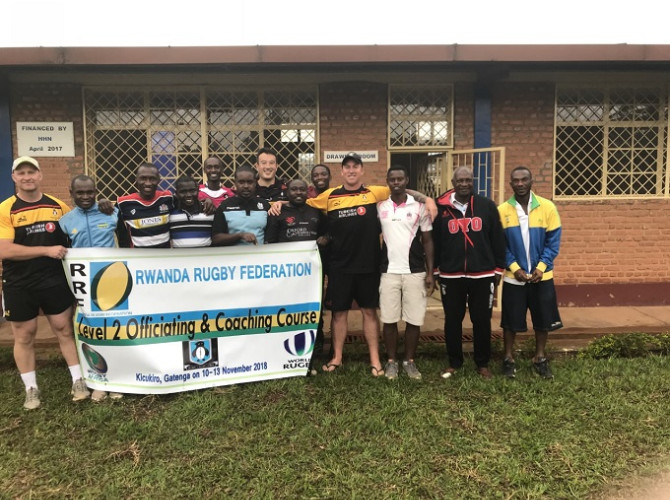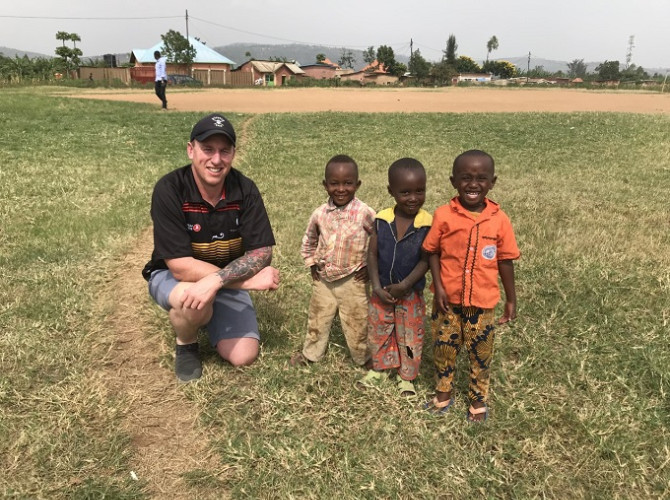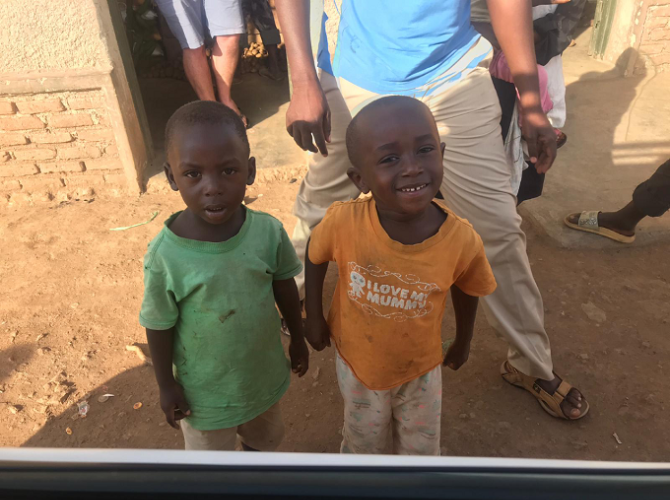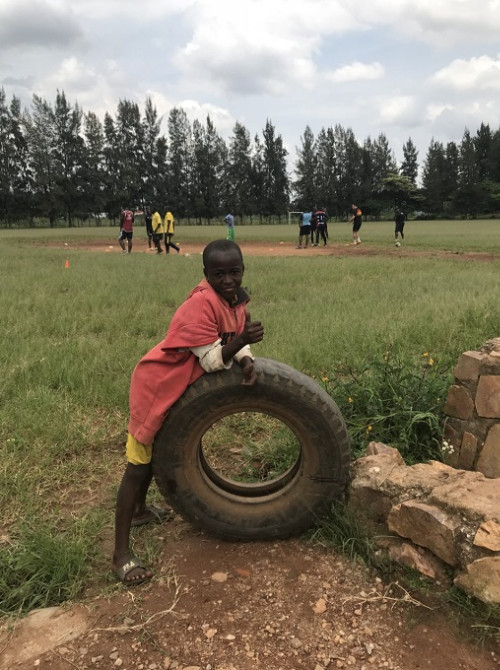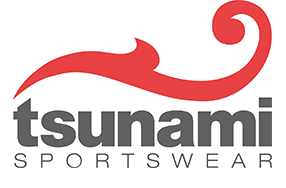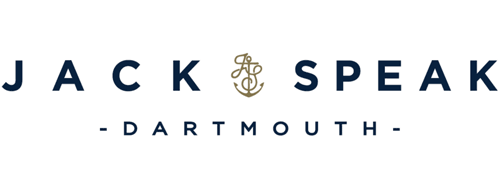Penguin Coaching Academy Trip to Rwanda
November 2018
Article by Tony Penn
Introduction
The purpose of this trip was to run World Rugby Coach and Referee courses as well as assist with schools and grass roots coaching. The Penguins on the trip where Tony Penn, Colin Brett and James Wade (Colin and James work for the Scottish Rugby Union).
Level 2 Match Officiating Course, November 10th- 11th
Match Officials Educators: Colin Brett, James Wade, Tony Penn
The level 2 match officiating course started on Saturday morning with twelve Rwandans in attendance and the course started with some great discussions on how referees can influence the contest for the ball and continuity of play. The best way to learn refereeing is to get out there and have a go, so that's what we did! All the guys had plenty of opportunities throughout the weekend to practice the concepts of positioning and communication while applying their new law knowledge of the breakdown, scrums, and game management. They also joined the national teams training session to referee some live rugby.
The two-day match officiating course was very successful with all participants successfully completing the course and graduating as level 2 referees. The guys now have the fundamentals of refereeing and will start officiating within Rwanda.
World Rugby Level 2 coaching Course, November 12th – 13th
Coach Educators: James Wade, Tony Penn, Colin Brett
Ten coaches from around Rwanda attended the World Rugby Level 2 Coaching on the 12th & 13th November in Kigali. The aim of the course was to build upon the coaching process and technical knowledge developed in the World Rugby Level 1 Coaching Course – with a greater emphasis on developing the 15-a-side game.
Day 1 started in glorious sunshine, with the coaches revisiting the coaching process and coaching skills work from the Level 1 by analysing a model session delivered by James. The morning session then progressed onto coaching session design – with a focus on coaching through games and looking at skill vs technique. In particular, on how that impacts upon activity design and the ‘how to’ coaching skills. Concepts such as condition defence to develop attacking decision making, and vice versa for defence, were explored. Coaching feedback skills to encourage player reflection formed a large part of the discussion, with coaches learning how to utilise visual feedback tools such as freeze frame and/or replay.
The afternoon of day 1 delved more into the principles of attacking play, utilising some of Scottish Rugby’s Technical Blueprint. The Educators used a combination of practical games and video analysis to develop the coaches’ knowledge of playing through the first receiver, alignment and how to exploit space in various parts of the pitch.
The final part of the day saw the coaches’ piece together all of the elements worked on to deliver sessions to the Rwandan national team (The Silverbacks). Three groups were each given a warm up, a handling skill wheel and a game to develop playing through the first receiver to deliver. The session was interactive, with plenty of learning and activity for both the coaches and the players
Day 2 started with a reflection on the previous day’s coaching delivery. Coaches looked critically at whether the purpose of the activities were met, and how they would progress the activities further to challenge the players further.
The weather in Kigali was brilliant again, so the coaches headed outside to work on more attacking games and skill activities, before completing their final practical around the defensive elements of the game. The coaches looked at how to develop the individual tackle, both from a technical and physical competence perspective, before learning about team defence, including the roles either side of the tackler and how to fill the field effectively and quickly to maximise line speed to put pressure on the attack.
The day was wrapped up with a summary of the outdoor content and an opportunity for the coaches to analyse some footage to identify the defensive principles in action.
The coaches were excellent throughout the course, showing a great attitude to learning and application of the materials which were explored.
In addition to the two courses run by the Penguin coaches ran a number of other activities including:
- Planned and delivered 3 x coaching sessions for the Rwandan national team (Silverbacks) in preparation for their upcoming African cup tournament – They have now been promoted into the Silver cup division
- Sourced and visited another potential site for a rugby ground. Talked to local government official and he informed me that this particular ground could potentially be gifted to the Federation provided that a plan for development was put in place.
- Individual player development sessions for members of the Rwanda national team
- Reviewed current governance and financials and reports
- Provided support and advice to Khamanda for the upcoming Presidential election. I am pleased to inform you all that he was successful, which in my opinion will be of a huge benefit to the federation and will help with the continued growth and development of the game. `
- Provided some training and advice for Livingstone. I reviewed all the tasks I had set him on my previous trip – I continue to liaise with him weekly
Looking after us for the week were Livingstone the Penguin funded General Administrator of the Rwandan Rugby Federation, and Khamanda the newly appointed President. They were both extremely welcoming and made our stay very enjoyable.
Thanks to Dave Hughes who has supported the Penguin trips to Rwanda in many ways.
